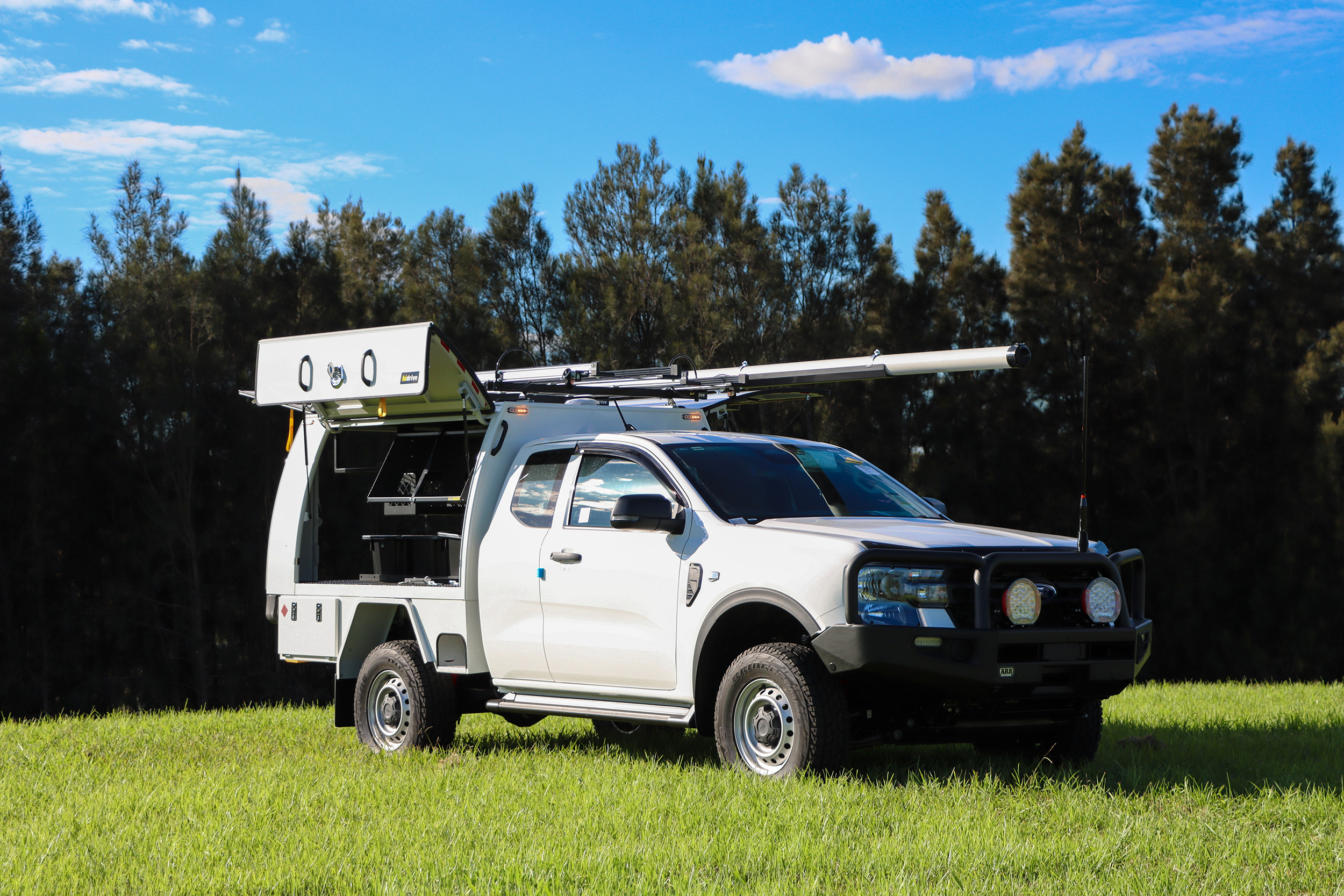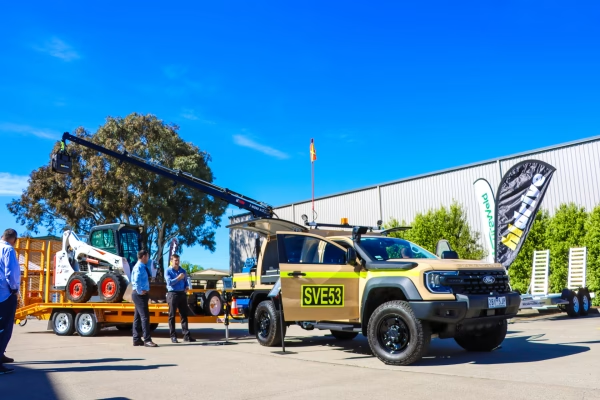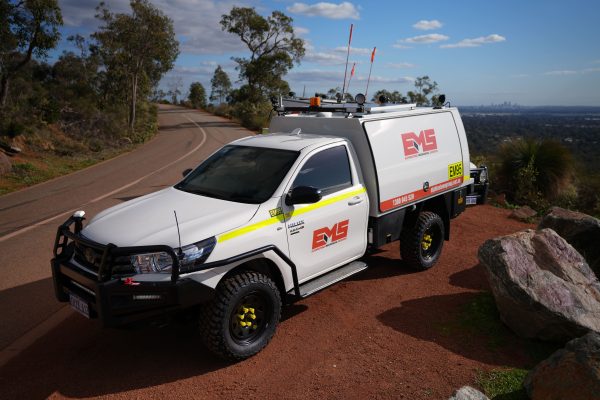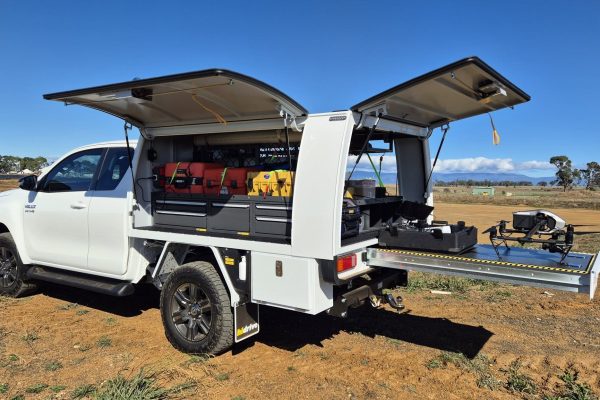Fleet management organisations across Australia face growing pressure to reduce emissions, meet sustainability credentials, and deliver on environmental goals. While attention often falls on vehicles themselves, the service body is an equally important factor in overall fleet performance and efficiency. Modern aluminium service bodies are engineered to be lightweight yet strong, improving fuel efficiency and reducing emissions over the vehicle’s life. Modular designs, renewable energy sources, and local manufacturing further enhance environmental impact and lifecycle value. By focusing on fit-for-purpose solutions that provide secure storage while carrying heavy loads, fleets can create a functional balance between productivity and sustainability. Service bodies are no longer just storage units — they are critical contributors to a smarter, greener business strategy.
Key Takeaways
- Aluminium service bodies reduce weight, improve fuel efficiency, and cut emissions.
- Modular designs extend life across multiple vehicles and contribute to sustainability goals.
- Renewable energy sources like solar panels power accessories and reduce environmental impact.
- Secure storage solutions remain functional while supporting fleet sustainability credentials.
- Local manufacturers in Australia ensure the product meets strict standards and creates value for business customers.
Summary Table
| Feature | Benefit | Fleet Impact |
| Aluminium materials | Lightweight builds improve efficiency and fuel efficiency | Reduced fuel use, lower emissions, stronger vehicle performance |
| Modular canopy designs | Fit for purpose and transferable across fleet | Extended life, reduced waste, perfect fit for specific requirements |
| Renewable energy integration | Roof panels power accessories and tools | Lower idling time, reduced environmental impact, improved efficiency |
| Local manufacturers in Australia | Product meets safety and industry standards | Faster process, reliable support for customers, stronger sustainability credentials |
Lightweight Materials Drive Efficiency
One of the most effective ways to improve vehicle efficiency and reduce emissions is through lightweight service body construction. Traditional steel bodies add significant weight, forcing the vehicle to work harder and burn more fuel. In contrast, aluminium service bodies provide the same secure storage capacity while dramatically lowering tare weight. The result is improved fuel efficiency, reduced emissions, and better overall vehicle performance across the fleet.
Aluminium is not only lighter but also durable enough to carry heavy loads without compromising safety or functionality. For fleet managers, this means less strain on trucks, longer component life, and a fit for purpose solution that balances strength with sustainability. Reducing unnecessary weight also helps businesses meet environmental goals while controlling operational costs. In Australia, where fleets cover long distances across demanding conditions, the benefits of lightweight materials are magnified. By choosing aluminium, fleets can create sustainable service bodies that contribute directly to environmental impact reduction and long-term efficiency gains.
Modular Design for Longer Life
Sustainability in fleet operations is about more than reduced emissions — it’s also about maximising the life of every asset. Modular service body and canopy systems are designed to be removed, refurbished, and remounted, allowing fleets to reuse the same body across multiple vehicles. Instead of scrapping an entire fit out when a truck reaches the end of its lease, modular designs create long-term value by extending service body life and reducing waste.
This approach delivers a fit for purpose solution that adapts to specific requirements as the business evolves. A canopy can be reconfigured with new accessories or layouts to provide the perfect fit for changing jobs, ensuring the investment continues to suit both the team and customers. By focusing on flexibility and reuse, modular service bodies contribute to sustainability goals while providing functional, secure storage solutions. Fleets in Australia gain both environmental and economic benefits by creating smarter lifecycle strategies.
Renewable Energy Integration
Integrating renewable energy sources into service body design is becoming a practical way for fleets to reduce their environmental impact. Roof-mounted solar panels can generate clean energy to power accessories, lighting, and onboard tools without relying on idling trucks or external generators. This improves overall fuel efficiency and cuts emissions, especially for fleets operating in remote or off-grid locations.
By using renewable energy, service bodies become more functional and efficient, supporting sustainability credentials while reducing strain on dual battery systems. The ability to create clean energy on the move also contributes to meeting environmental goals and strengthens ESG reporting. For fleet managers, the benefits go beyond sustainability. Reduced idling lowers vehicle wear, extends battery life, and ensures that heavy loads can still be managed effectively with minimal downtime. Renewable energy integration helps fleets in Australia suit both operational demands and long-term sustainability commitments, making it a smart fit for modern business processes.
Local Manufacturing and Industry Standards
Sustainability in fleet operations also depends on where and how a service body is produced. Choosing manufacturers in Australia reduces the environmental impact linked to overseas shipping and ensures the product meets strict local safety and environmental standards. Local manufacturing also supports the circular economy, with stronger recycling and repair networks that keep materials in use for longer.
For fleet managers, the benefits extend beyond sustainability. Local expertise means faster turnaround times, more reliable processes, and easier access to parts and support when required. This commitment to quality gives businesses confidence that their investment will remain functional and fit for purpose throughout the vehicle’s life. Working with Australian manufacturers also helps fleets align with industry expectations, ESG reporting, and customer demands for sustainable practices. With teams focused on creating practical, secure storage solutions and accessories tailored to specific requirements, local manufacturing is a clear choice for fleets that want to combine environmental goals with proven business efficiency.
ESG and Procurement Focus
Procurement decisions are increasingly tied to sustainability credentials and the ability to demonstrate measurable contributions toward environmental goals. For a fleet, the choice of service body has a direct impact on emissions, efficiency, and long-term business value. Aluminium construction, modular canopy systems, and renewable energy integration all contribute to reduced environmental impact while creating functional, fit for purpose solutions.
Fleet managers and procurement teams must also consider how suppliers align with broader ESG commitments. Partnering with manufacturers that show a clear focus on sustainability helps ensure the product meets compliance obligations and market expectations. Service bodies are no longer just equipment — they are a strategic tool that contributes to the job of building resilient, sustainable fleet operations in Australia.
Final Thoughts
Sustainability in fleet operations isn’t achieved by changing vehicles alone — it requires smarter choices across every component. Modern service body design, from aluminium builds to modular canopy systems and renewable energy integration, allows fleets to create solutions that are both functional and environmentally responsible. Local manufacturers in Australia add further value by ensuring the product meets strict standards while supporting business efficiency. By focusing on sustainability, fleets can reduce emissions, achieve environmental goals, and deliver long-term benefits for their team, customers, and the wider industry.
FAQs Answered
What makes a service body sustainable and reliable?
At Hidrive, sustainability and reliability go hand in hand. Our co-bonded aluminium service bodies are lightweight yet exceptionally strong, delivering corrosion resistance and lower emissions through reduced tare weight. Each body is designed for reusability and modularity, allowing components to be transferred across multiple vehicles. By integrating renewable energy options and manufacturing locally, we minimise environmental impact while extending product lifespan and performance.
How do aluminium service bodies improve vehicle efficiency?
Hidrive’s precision-engineered aluminium builds significantly reduce overall vehicle weight, improving fuel efficiency and lowering CO₂ emissions. The lighter structure also enhances handling, braking, and payload capacity—ensuring your fleet performs efficiently without compromising durability or compliance.
Can modular canopies be reused on different vehicles?
Yes. Hidrive’s modular canopy systems are designed for flexibility and longevity. They can be unbolted, refurbished, and remounted onto new utes or trucks of similar size, allowing fleets to maximise return on investment and reduce waste throughout multiple vehicle lifecycles.
Why is choosing Australian-made service bodies important for ESG?
Australian manufacturing supports more than local industry—it strengthens sustainability. By building locally, Hidrive reduces transport emissions, ensures every product meets national safety and environmental standards, and contributes to a circular economy through recycling, repair, and end-of-life recovery.
How do service bodies help fleets meet environmental goals?
Hidrive’s service bodies combine lightweight aluminium, modular design, renewable energy integration, and national production to deliver measurable ESG benefits. Fleets benefit from reduced fuel use, lower emissions, and extended product life—all contributing to sustainability targets and long-term operational efficiency.



